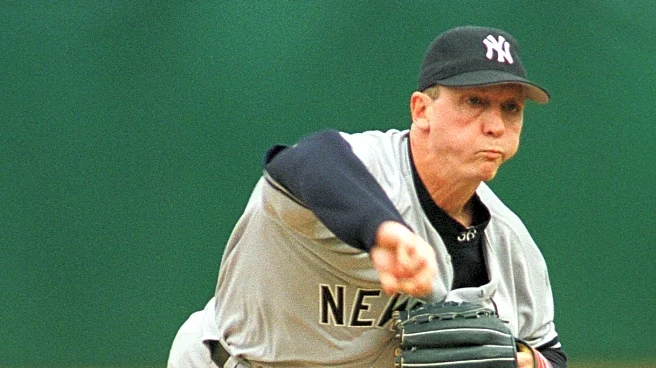David Cone’s 2000 campaign can be described as nothing short of a disaster. When the calendar flipped to August, he had a whopping 6.88 ERA in 19 starts, averaging just five and a half innings per game
(while that’s pretty decent for today, in 2000 that was atrocious, especially for a pitcher expected to be a top-of-the-rotation starter). Over the month of August, however, Cone seemed to have gotten back on track: he had a 2.74 ERA in four starts, completing at least six innings in three of them. For the first time all season, he looked like the pitcher he had been throughout his career, just when the Yankees, desperate for some stability in the middle of the rotation, needed him.
Unfortunately, it wouldn’t last.
August 25: Yankees 1, Athletics 8 (box score)
Record: 70-55 (1st in AL East, 3.0 games ahead)
From the jump, it was clear that the eventual AL West champion Athletics had David Cone’s number. After striking out Terrence Long to lead off the bottom of the first, he allowed old friend Randy Velarde to reach on a single up the middle and walked Jason Giambi on four straight pitches. Former batterymate Mike Stanley then drove a 3-2 pitch that would have been a home run if he hadn’t hit it to straightaway center; as it was, Clay Bellinger — making just his eighth career appearance in center in place of the injured Bernie Williams — made an ugly catch at the wall to keep the game scoreless.
Unfortunately, Cone’s defense couldn’t bail him out in either of the next two innings. The second inning saw Matt Stairs homer to right-center to give the Athletics a 1-0 lead. Long then led off the third with a double. He then plunked Velarde and walked Giambi for the second time that night to load the bases with nobody out. After Stanley lined out, Ben Grieve singled in Long and Velarde, putting runners on the corners. Two batters later, he walked Stairs to load the bases for the second time in the inning. Eric Chavez then doubled off the wall in left-center, clearing the bases and giving the Athletics a 6-0 lead. While Ramón Hernández would ground out to third to end the inning, the damage was done — and so was Cone’s night. His final line wasn’t pretty — six runs on five hits in three innings, walking three and striking out three — and still, somehow, didn’t fully capture just how ineffective he was on the night.
Meanwhile, the Yankees offense couldn’t get anything going against Oakland starter Kevin Appier, who coming into the game had been dealing with a dead arm. Across eight innings of work, he allowed just four hits and four walks while recording eight strikeouts. The Yankees did not have more than one baserunner in an inning after the third, and were only able to scratch across one run in the seventh thanks to a throwing error by the pitcher and a wild pitch putting the leadoff hitter (Tino Martinez) in scoring position without a ball reaching the infield dirt.
In many ways, the game would have been a lot worse if it weren’t for Randy Choate. The rookie reliever, who had not been asked to provide more than one inning of work and who had on more than one occasion come into the game just to face a lefty, gave the Yankees four solid innings in relief of Cone, allowing just one hit — a fifth inning homer off the bat of Grieve.
Thanks to Choate’s ability to provide length, Joe Torre only had to call on one other reliever — Jason Grimsley, who struck out three batters but allowed two doubles in the eighth to bring the final score to 8-1 — despite his starter only going three innings. So if it was a loss that wasn’t particularly close, at least it didn’t really affect the days that followed.
Read the full 2000 Yankees Diary series here.









